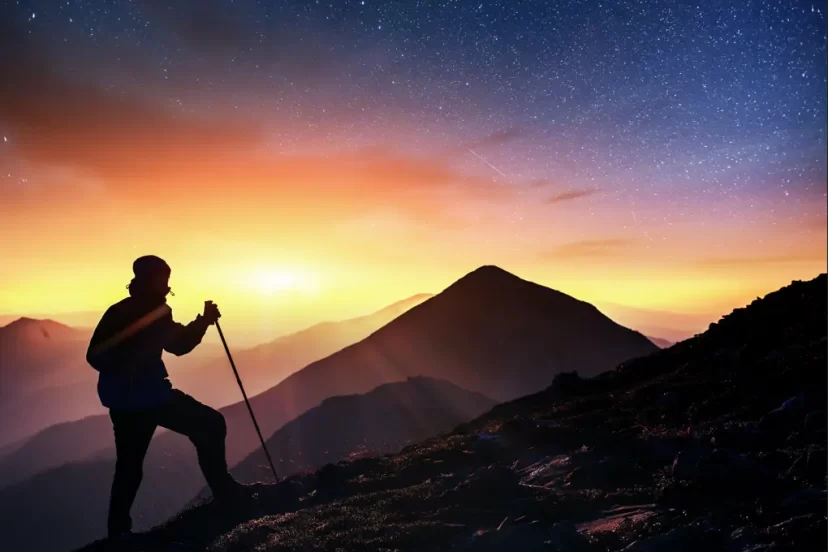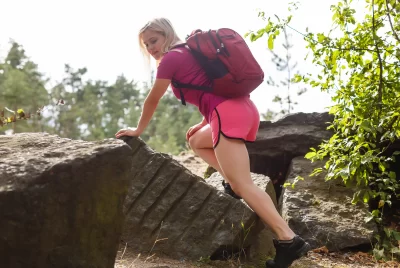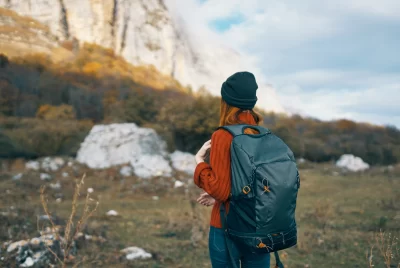Night Hiking: Exploring Gears, Tips, and Safety Precautions
Isn’t it terrifying, fraught with unknown perils? Is it even remotely safe? And the most pressing question of all, why would anyone voluntarily choose to wander off into the inky black night rather than soak in the sunshine and stunning vistas during the day? In this comprehensive guide, I will share with you my love for night hiking, and provide in-depth advice on gear selection, practical tips, and essential safety precautions to ensure your nocturnal adventures are memorable, exhilarating, and most importantly, safe.
Understanding Night Hiking
What is Night Hiking?
Night hiking, in the simplest of terms, involves the act of exploring trails and natural landscapes during the darkened hours of nightfall. It’s an exercise that presents a unique and exhilarating divergence from the typical daytime jaunts, awakening your senses to the hidden nuances of the nocturnal world and expanding the boundaries of your adventurous spirit.
Why Choose Night Hiking?
The allure of night hiking lies in its distinct and tangible differences from daytime trekking. The night brings with it a tranquil serenity that is rarely found during the hustle and bustle of the day. You’re less likely to encounter large crowds, allowing you to enjoy the profound peacefulness of nature enveloped in the soft blanket of darkness. The celestial dance of the stars above presents an ethereal backdrop that is breathtakingly beautiful, often igniting a sense of awe and wonder at the universe beyond our tiny blue planet. Furthermore, the challenge of navigating in reduced visibility can serve to test and develop your hiking skills in exciting new ways.
Essential Gear for Night Hiking
The Right Clothing
Clothing selection for night hiking should prioritize warmth and comfort. As the sun dips below the horizon, the heat of the day gradually dissipates, leading to a significant drop in temperature, especially in open, high-altitude regions. Layering is a key strategy to handle this shift. Opt for materials like merino wool or high-performance synthetic fabrics, renowned for their excellent heat-retention properties and moisture-wicking capabilities.
Reliable Lighting
I cannot stress enough the importance of reliable lighting for night hiking. The quintessential headlamp is a mainstay in every night hiker’s kit, casting a steady beam of light to guide your path while leaving your hands free for balance and navigation. Extra batteries or a backup light source should always be on hand, serving as an insurance policy against unforeseen malfunctions or prolonged hikes.
Navigation Tools
Trails can take on a whole new persona under the cloak of darkness, with familiar landmarks and routes often becoming unrecognizable. Traditional tools such as a map and compass are non-negotiable essentials and modern aids like a GPS device can offer additional reassurance when navigating the intricate web of trails in the dark.
Emergency Equipment
Equip your backpack with a basic first aid kit, catering to common injuries like cuts, sprains, and blisters. A whistle, lightweight and piercingly loud, can prove invaluable in attracting attention in case of emergencies. A compact, lightweight emergency blanket can provide much-needed warmth if you find yourself stranded in the cold. Additionally, a sturdy phone with long-lasting battery life is recommended, providing a crucial link to the outside world when you need it most.
Tips for Successful Night Hiking
Choosing the Right Trail
Choosing a trail for your nocturnal exploration should not be done lightly. Familiarity is your ally when the world is shrouded in darkness. I recommend starting with trails you’ve trekked during the day, minimizing the risk of losing your way.
Weather Considerations
The weather is a fickle factor that holds immense sway over your night hiking experience. Always consult the weather forecast before you embark on your journey. Clear, cloudless skies offer excellent stargazing opportunities, but adverse conditions like rain, fog, or even snow can compound the challenges of night hiking, potentially making it a hazardous endeavor.
Managing Time and Pace
Night hiking can be a test of patience. Progress is often slower than expected, as the darkness necessitates a more cautious pace and heightened awareness. Begin your hike early enough to ensure you have ample time to return safely and moderate your pace to conserve energy.
Awareness of Wildlife
The night is a time of activity for many species of wildlife, some of which you may rarely, if ever, encounter during the day. Research the wildlife in the area you plan to hike, be aware of your surroundings, and always maintain a respectful distance.
Safety Precautions for Night Hiking
Checking Equipment Beforehand
Before you step out into the night, a thorough check of all your equipment is paramount. Your life may quite literally depend on the functioning of your lighting and navigation equipment, so take the time to ensure everything is in working order.
Hiking in Groups
In the realm of night hiking, there is indeed safety in numbers. Whenever possible, hike with at least one other person. If you absolutely must hike alone, it’s even more crucial that someone knows your plans.
Informing Others of Your Plan
Regardless of whether you’re hiking solo or in a group, always ensure someone reliable is informed of your intended route and expected return time. This simple precaution creates an additional safety net in case something goes awry.
Dealing with Emergencies
In the event of an emergency, the first step is to remain calm. Use your whistle to signal for help, and make use of your emergency blanket and first aid kit if necessary.
Conclusion
The world of night hiking is a realm of enchanting mystery and quiet solitude, inviting you to experience the wilderness from a refreshingly new perspective. It’s an adventure that requires careful preparation and due respect for the unpredictability of nature. By equipping yourself with the right gear, following the tips and safety precautions I’ve shared based on my own experiences, and maintaining a mindset of respect for nature and personal safety, you’re sure to have an unforgettable and safe night hiking experience.
Read more on Hike Knowledge Hub.
Frequently Asked Questions (FAQs)
1. Is night hiking safe?
Yes, night hiking can be as safe as day hiking, provided you equip yourself correctly, plan meticulously, and follow the necessary precautions.
2. What is the most important gear for night hiking?
While all pieces of gear serve their unique purposes, reliable lighting and effective navigation tools are especially critical.
3. Can I go night hiking alone?
Although it’s safer and generally more enjoyable to hike with others if you choose to hike alone, make sure you’ve informed someone of your plans and have the right safety equipment.
4. Are animals a significant concern when night hiking?
Many animals are more active at night, but with awareness, knowledge about local wildlife, and a respectful distance, animal encounters can be managed safely.
5. Is night hiking harder than day hiking?
Night hiking presents unique challenges such as limited visibility and navigation in darkness. However, with the right preparation, skills, and gear, it’s an exciting and rewarding experience that many hikers come to love.




